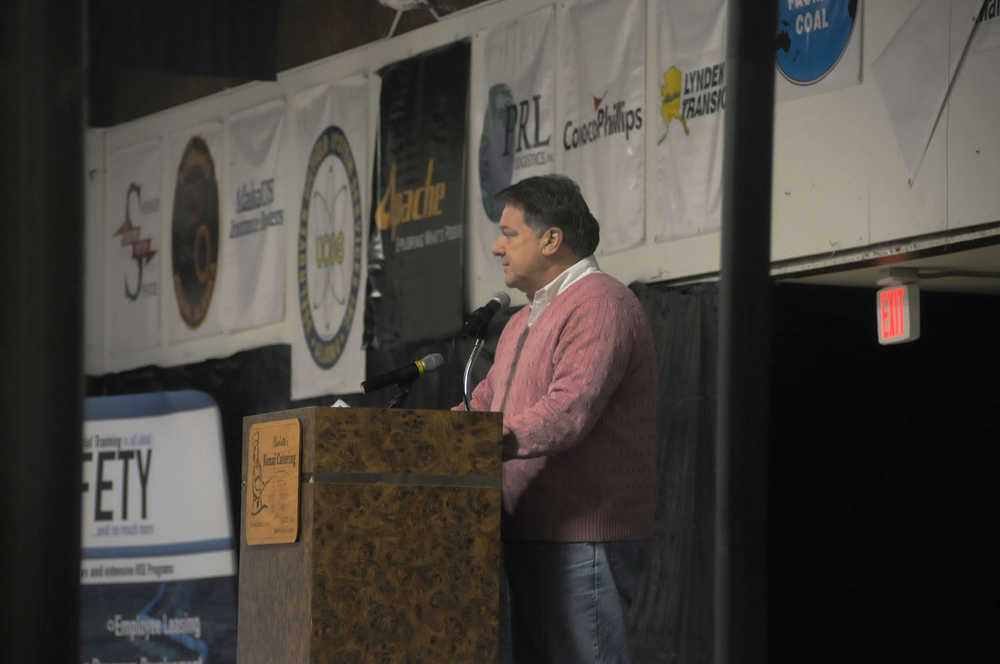Although the state’s budget crisis looms over local government, public officials in the Kenai Peninsula Borough say they are hopeful for the future.
The annual Industry Outlook Forum, hosted by the Kenai Peninsula Economic Development District at the Old Carr’s Mall on Thursday and Friday, featured speakers from the various industries of the peninsula, economists and local public officials, who presented data and updates on the economy of the peninsula.
“The long-term of the state of Alaska is going to be great,” said Borough Mayor Mike Navarre. “In the short-term, we face some hurdles.”
Navarre said the borough is in relatively good shape as it prepares to develop its budget this year but is looking at additional places to cut if necessary, such as not filling positions that become vacant if possible. Last year, counting the school district, the borough received about $103 million from the state, he said.
However, local governments will feel some of the impacts of the state’s budget crisis, he said. Most of the cuts have come from the capital budget, he said, limiting new projects. The state should look at issuing bonds to pay for some construction projects, he said.
“I’m encouraging the state look at some (general obligation) bonds,” Navarre said. “The reality is we kind of do things a little backwards. When oil prices are high, when revenues are high, we spend a lot of money on capital. When the prices drop off, everybody cuts.”
Declining oil and gas revenues loomed at the edge of the conversation. Navarre said the changes in oil and gas will present a tough environment for the legislature as they work toward a sustainable budget, and he encouraged the attendees to support the legislators.
The situation is similar for the City of Kenai, said vice-mayor Brian Gabriel. The city is also moving into its budget process soon and will be cautious about its capital project planning, he said.
Gabriel said the state’s budget situation has been predicted for some time, and it is important for local governments to create a welcoming business environment for producers to keep operating.
“This is something that’s on everybody’s mind,” Gabriel said. “The important thing about Cook Inlet is that it’s going to meet your, mine, our energy needs in years to come.”
Soldotna Mayor Pete Sprague said the city, while less dependent on oil and gas development, is adjusting to the loss of nine months of the grocery sales tax, repealed by popular vote in October. The Soldotna City Council recently approved a downtown development plan and has other infrastructure plans in the works. The annexation process is underway and the city will monitor any changes in the state’s budget as it goes through the process.
“It is crucial that we maintain the financial stability of our city, and exploring annexation is one way to do this,” Sprague said.
Homer Mayor Beth Wythe said the city is in its budget process and trying to work around a $1.2 million gap. The city has been working with citizens to develop ways to deal with the budget gap and has tried to include public opinion in its decision-making throughout the process, she said.
One of Homer’s challenges is short staffing, which results in fewer city services, she said. The city is promoting itself to the oil and gas industry and as a place to build, repair and dock boats, hoping to draw more of the industry into the local economy, she said.
“Our port and harbor has just been growing, our marine trades industry has been found on the map in the city of Homer,” Wythe said. “That growth has been great.”
Reach Elizabeth Earl at elizabeth.earl@peninsulaclarion.com.

